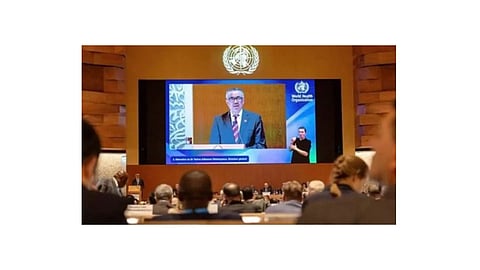

In a landmark decision at the 78th World Health Assembly, Member States of the World Health Organization (WHO) have unanimously adopted the world’s first Pandemic Agreement. The agreement aims to improve international coordination and ensure equitable access to vital healthcare resources during future pandemics, while firmly respecting national sovereignty.
The adoption of the agreement marks the culmination of over three years of intense negotiations initiated in response to the global devastation caused by the COVID-19 pandemic. In a press release, the WHO emphasized the agreement’s focus on making the world safer and more equitable in the face of future pandemic threats.
WHO Director-General Dr. Tedros Adhanom Ghebreyesus hailed the agreement as a major victory for global public health and multilateral cooperation. “The world is safer today thanks to the leadership and commitment of our Member States. This historic agreement will help ensure that we are better prepared and more united in responding to future health emergencies,” he said.
The agreement was formally adopted during a plenary session following its approval in Committee, where 124 Member States voted in favor, with no objections and 11 abstentions.
The WHO Pandemic Agreement outlines a framework for enhancing global preparedness and response capabilities. Key provisions include timely and equitable access to vaccines, diagnostics, and therapeutics during health crises. It also strengthens global cooperation in sharing information, research, and resources to address pandemic threats efficiently.
Importantly, the agreement reinforces the sovereignty of individual nations in public health decision-making. It explicitly states that the WHO, including its Director-General, will not have authority to dictate or enforce national laws or policies. This includes decisions about travel restrictions, vaccine mandates, or lockdown measures, which will remain within the jurisdiction of each Member State.
With this new agreement, the international community has taken a critical step toward a more coordinated, fair, and resilient global health system. It serves as a testament to the lessons learned from COVID-19 and represents a unified commitment to safeguarding lives, economies, and societies against future pandemics.